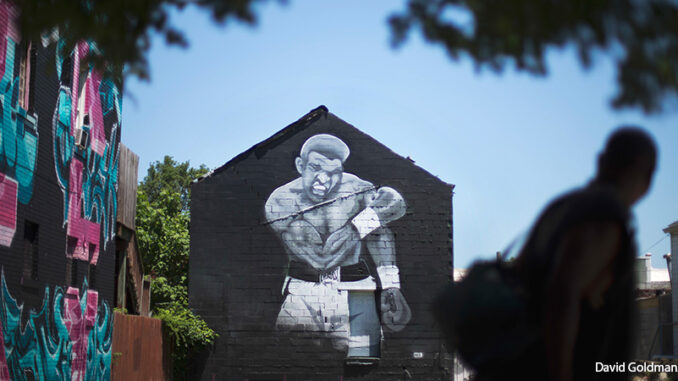
The year 2016 has been an especially significant one for deaths of our country’s heroes. The most recent loss to create a significant void is Muhammad Ali. Beyond his considerable skill as a boxer, Ali was an important cultural figure–outspoken and not afraid to take big risks in the name of fighting injustice.
Humble Beginnings
Ali was born Cassius Clay in 1942 in Louisville, Kentucky. The racial segregation of the time had a big impact on the young man. When he was twelve, his bike got stolen. A policeman, overhearing Clay’s vow to beat up the thief, told him that he had better learn to box, then. He was not a very good student, partially because he was dyslexic and partially because he missed a lot of school due to training to participate in boxing tournaments. Ali often made up for this deficiency by memorizing (which would serve him well as someone who liked to recite impromptu poetry during interviews). He began boxing in 1954. Clay eventually won a Gold medal in Light Heavyweight boxing at the 1960 Olympic Summer Games in Rome, Italy.
The Greatest
1960 marked the professional debut of Cassius Clay. In these first three years, his record was 19-0, with 15 of the wins coming by knockout. In 1964, he faced Sonny Liston for the title of Heavyweight Champion of the World. Despite being an underdog, Clay’s speed and agility led him to victory, and he became the youngest boxer to unseat a reigning champion. At the end of that fight he famously claimed, “I am the greatest!” He held the heavyweight title for three more years and the nickname for life.
Turbulent Times
At the height of his career, Clay converted to Islam and changed his name to Mohammad Ali. In 1967, Ali cited his beliefs as a reason for his refusal to be drafted into the U.S. Army during the Vietnam War. A group of athletes who had served in the military came together in an effort to convince Ali to fulfill his obligation; in the end, he convinced them he was right. Ali was fined $10,000, sentenced to five years in prison (which was reversed on appeal) and banned from boxing for three years. By time he returned to the ring, Ali’s reputation had grown to one of cultural hero. He was one of the first sports stars willing to regularly take a stand on issues that affected people and he became a transformational figure in the world of sports.
Later Years
Ali retired in 1981, at the age of 39. Three years later, he was diagnosed with Parkinson’s Disease, a degenerative condition that affects the nervous system. Ali was insistent on not being pitied and continued to devote himself to various causes, including a Parkinson research center bearing his name, the Make-a-Wish Foundation and the Special Olympics, to name a few.
At the 1996 Olympic Games in Atlanta, Georgia, Ali lit the ceremonial torch, commemorating the 100th anniversary of the Games. Many called the occasion, “the most inspiring moment in Olympic history.” Sports Illustrated magazine named him Athlete of the 20th Century.
Ali’s funeral was held in his hometown of Louisville, Kentucky. Massive crowds lined the streets to watch his processional pass by, and close to 20,000 people attended the memorial service. Those who spoke included those of Christian, Jewish and Buddhist faiths. Ali’s widow Lonnie said that her husband had “indicated that when the end came for him, he wanted to use his life and his death as a teaching moment.”
